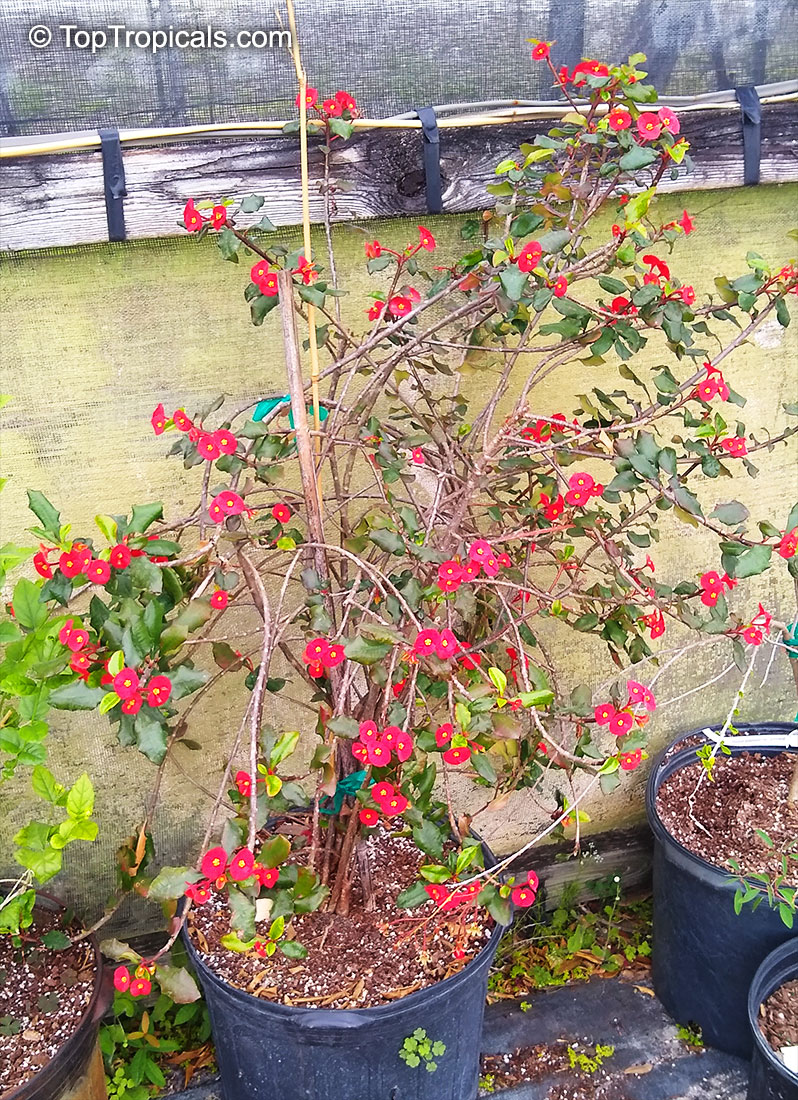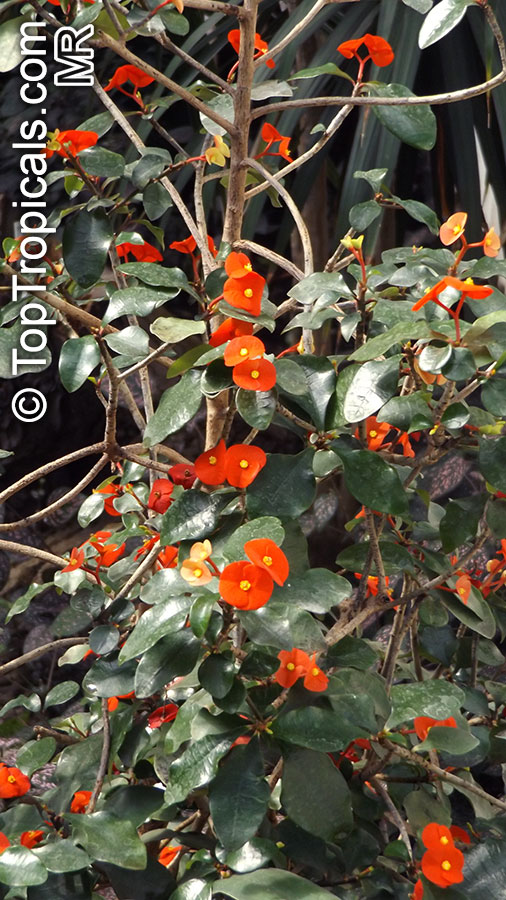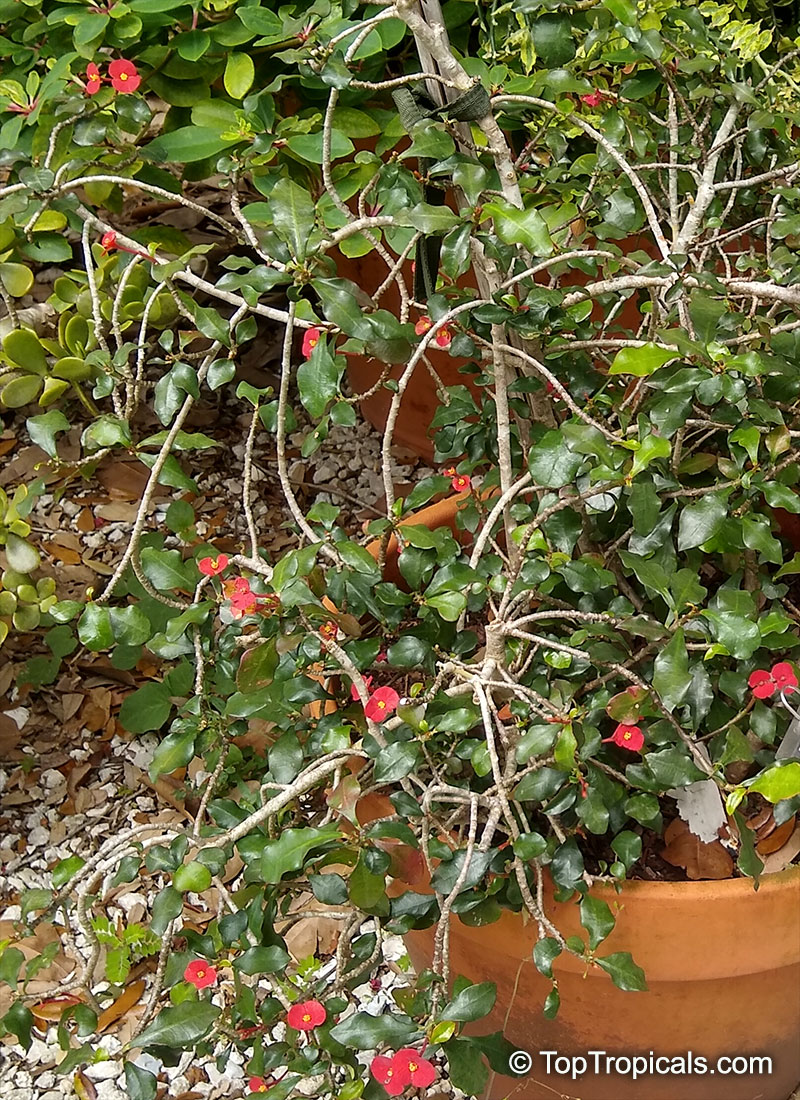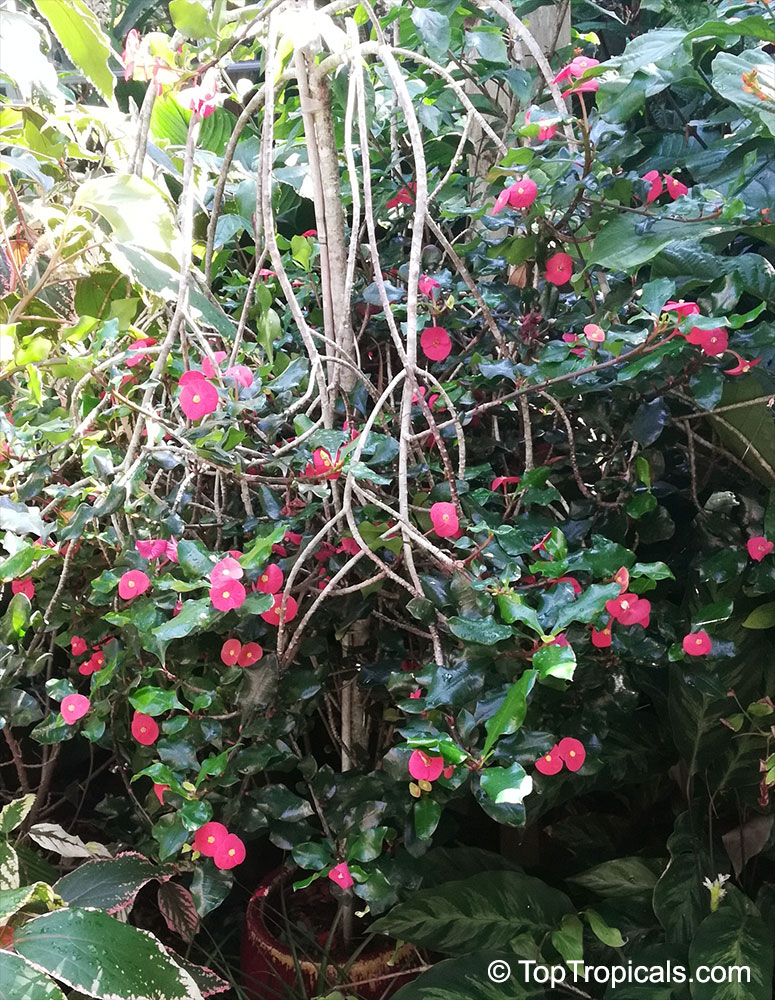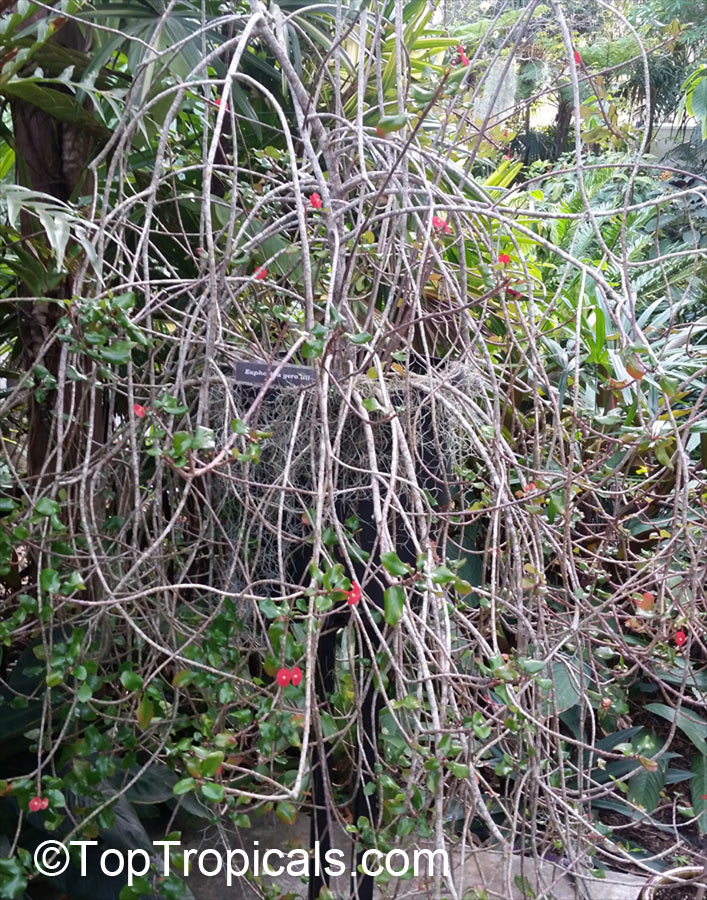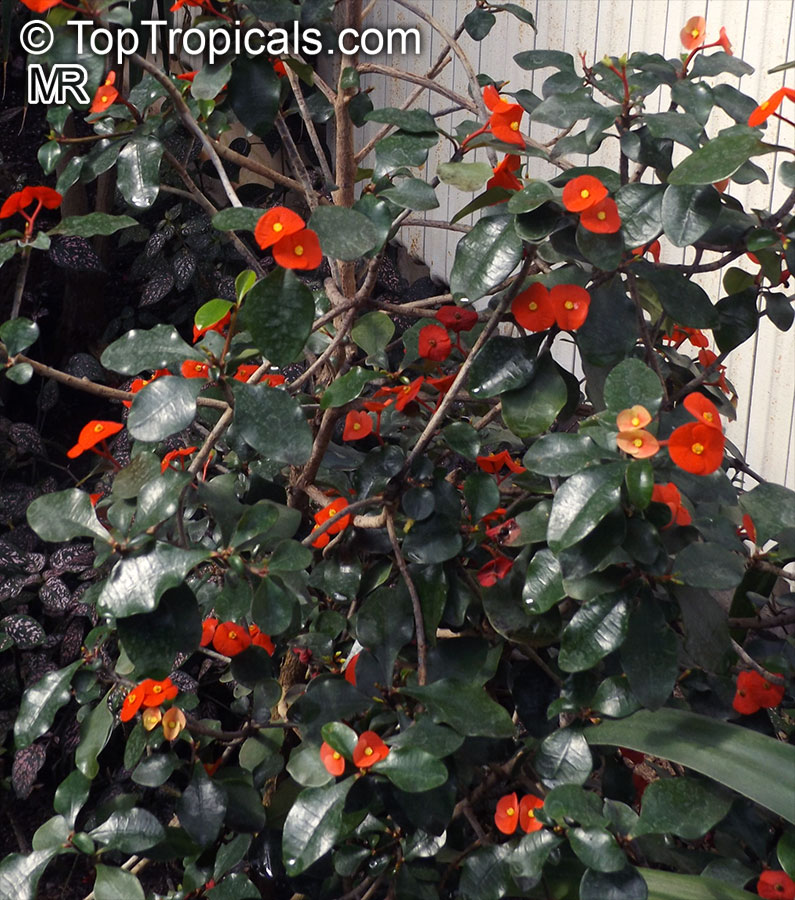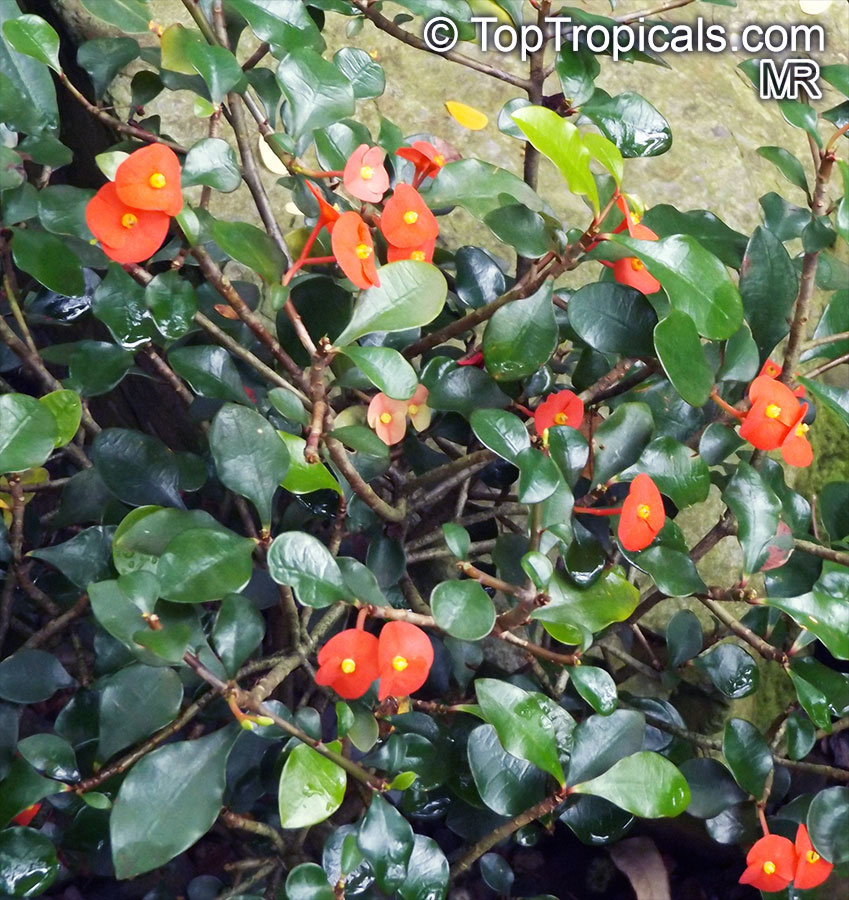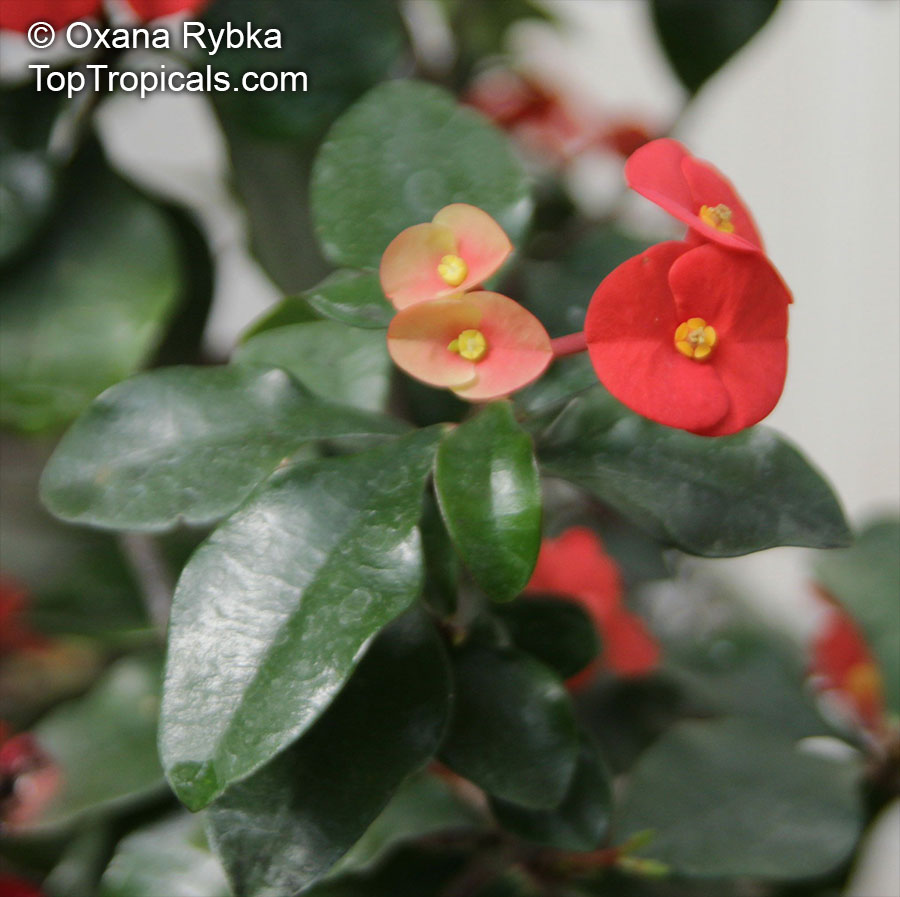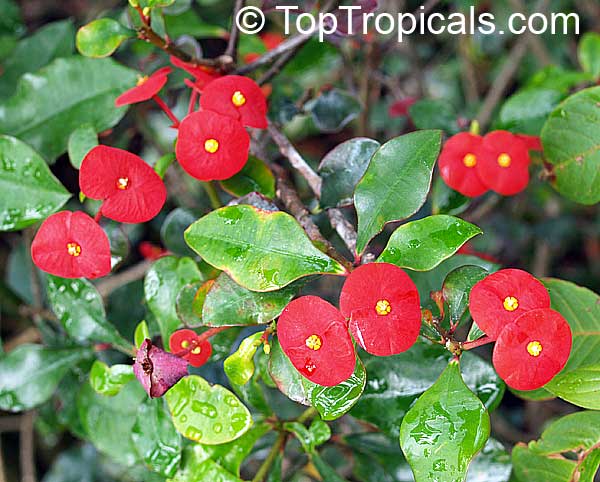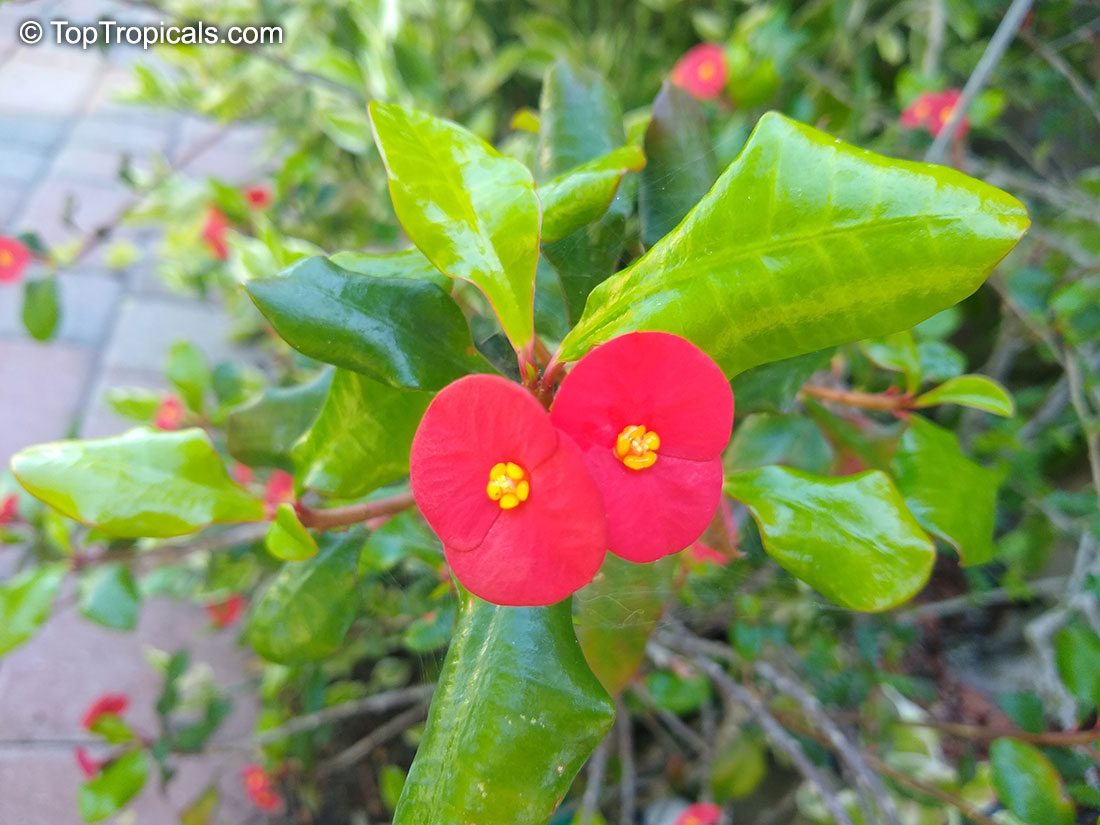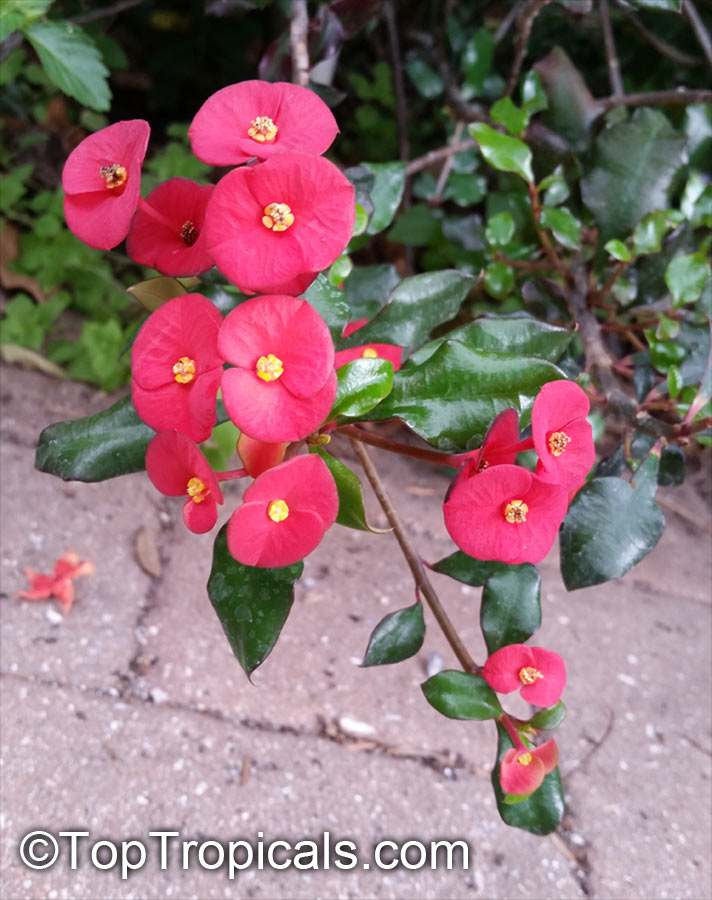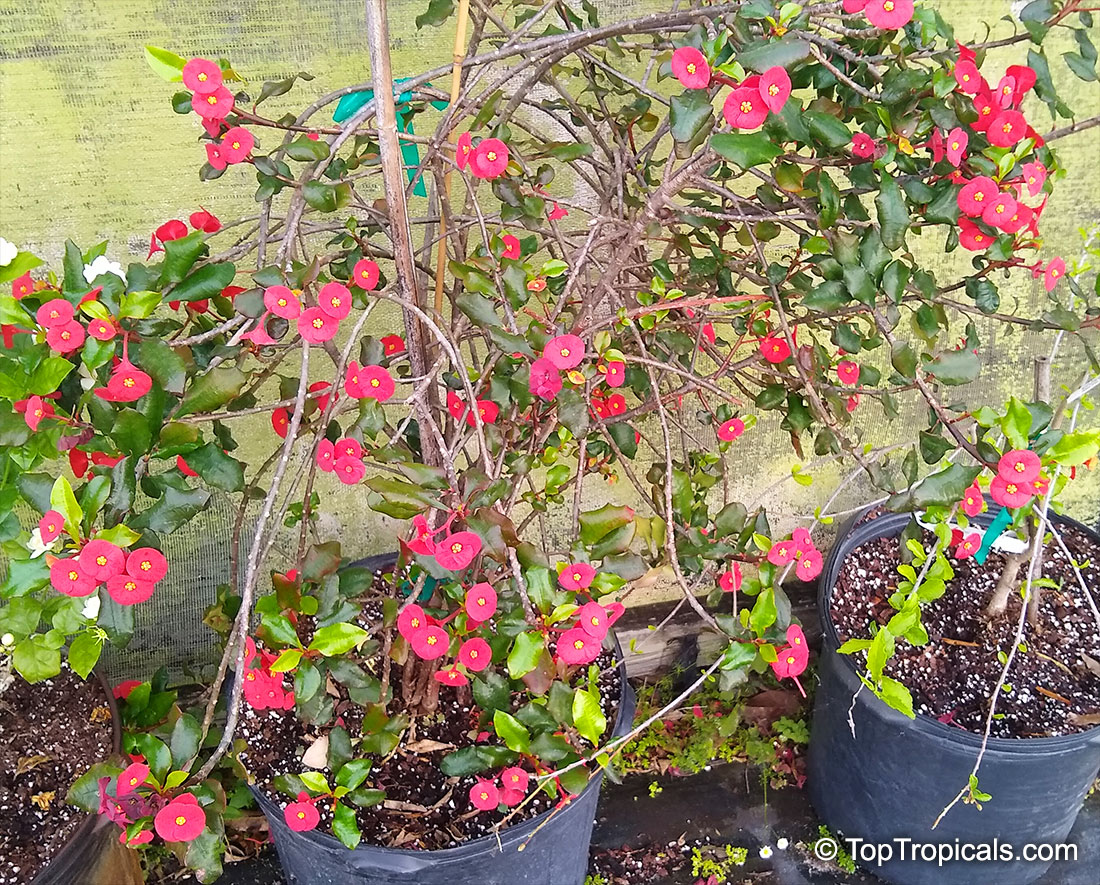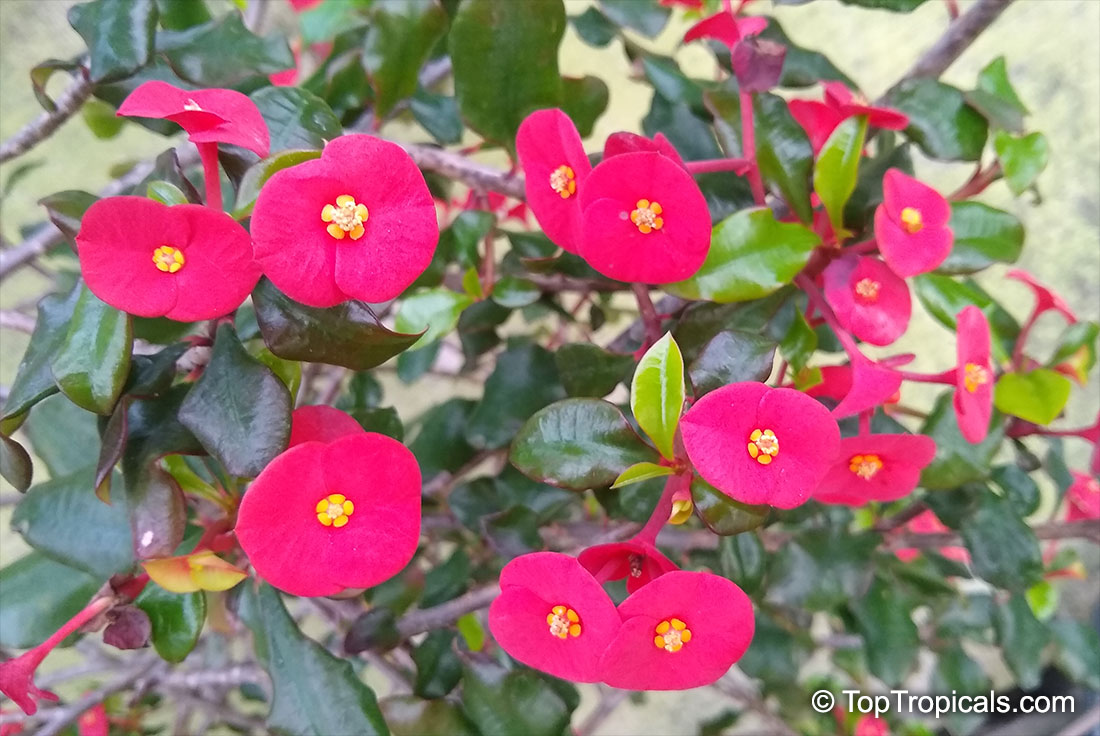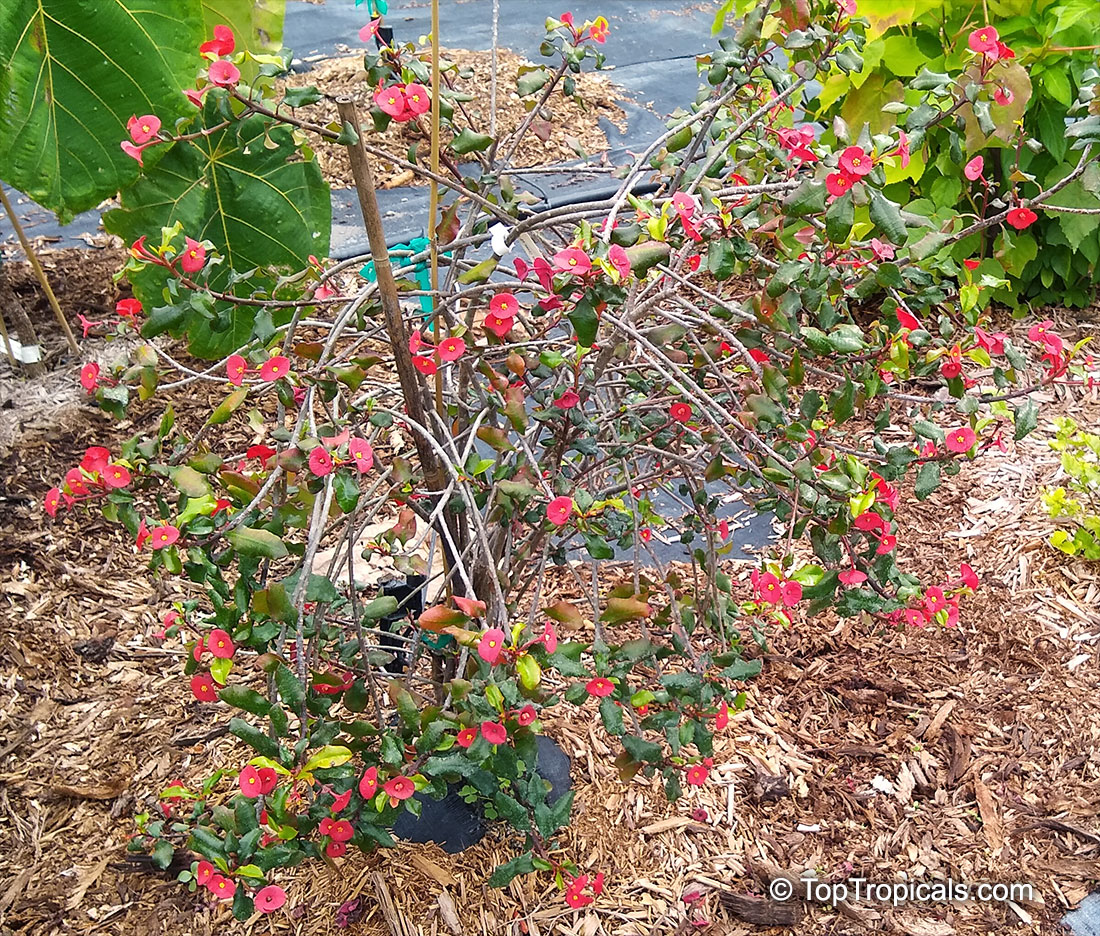Euphorbia geroldii (Thornless Euphorbia)
Botanical name: Euphorbia geroldii
Common name: Thornless Euphorbia
Family: Euphorbiaceae
Origin: Madagascar








This semi-succulent shrub blooms all summer with bright red flowers in pairs with yellow centers. With wider leaves than Euphorbia millii and no spine, it prefers semi-shade and likes more moisture than other similar Euphorbias.
Native to Madagascar, like its spiny cousin Euphorbia millii, but much rarer in cultivation.
Discovered in the 19th century, it's one of the very few thornless Euphorbias in this group.
Flowers nearly year-round in warm climates, not just summer, especially if kept moist.
The flowers are actually bracts (modified leaves), and they appear in pairs around the true tiny yellow center.
It tolerates containers very well, making it popular for bonsai and small space gardening.
While thornless, it still produces the typical Euphorbia milky sap, which is irritating if it touches skin.
In its natural habitat, it's endangered due to deforestation and over-collection, which makes cultivated plants even more valuable to collectors.
Compared to Euphorbia millii, it prefers a bit more shade and water, giving it a softer, lusher look.
Similar plants: Euphorbia geroldii (Thornless Euphorbia)
- Euphorbia aeruginosa (Miniature Saguaro)
- Euphorbia ammak (African Candelabra)
- Euphorbia bracteata (Tall Slipper Plant)
- Euphorbia bubalina (Buffalo Euphorbia)
- Euphorbia burmannii (Steenbokbos)
- Euphorbia caput-medusae (Medusa's Head)
- Euphorbia characias (Bush Spurge)
- Euphorbia confinalis (Confinalis)
- Euphorbia cooperi (Transvaal Candelabra Tree)
- Euphorbia cotinifolia (Red spurge)
- Euphorbia cyathophora (Summer Poinsettia)
- Euphorbia decaryi (Euphorbia)
- Euphorbia dendroides (Tree Spurge)
- Euphorbia enopla (Pincushion Euphorbia )
- Euphorbia enterophora (Milk-bush)
- Euphorbia epiphylloides (Euphorbia)
- Euphorbia epithymoides (Cushion Spurge)
- Euphorbia espinosa (Woody Euphorbia)
- Euphorbia fiherenensis (Pencil Tree)
- Euphorbia flanaganii (Medusa Head)
Recommended Fertilizer: SUNSHINE Megaflor - Bloom Nutrition Booster
